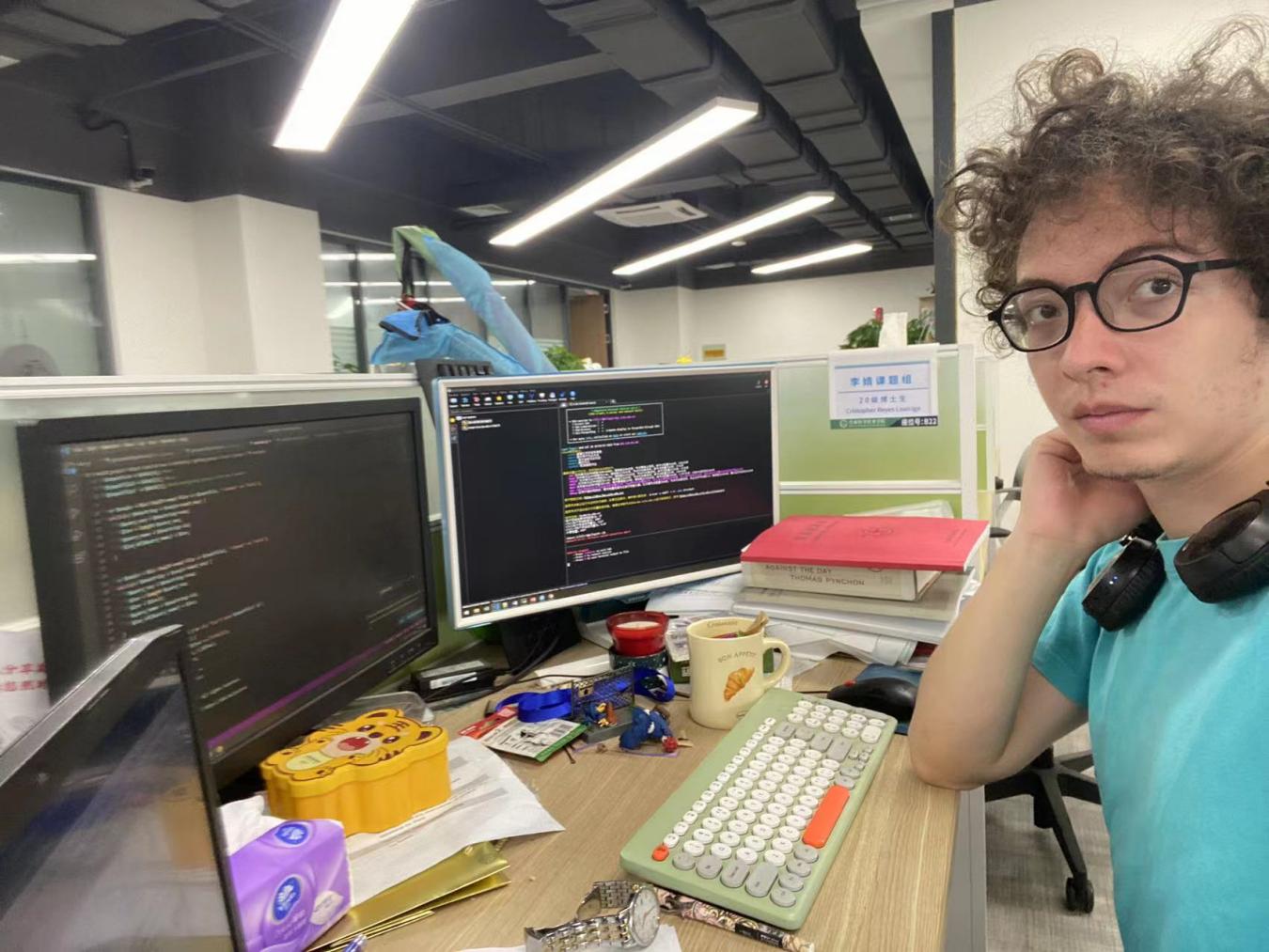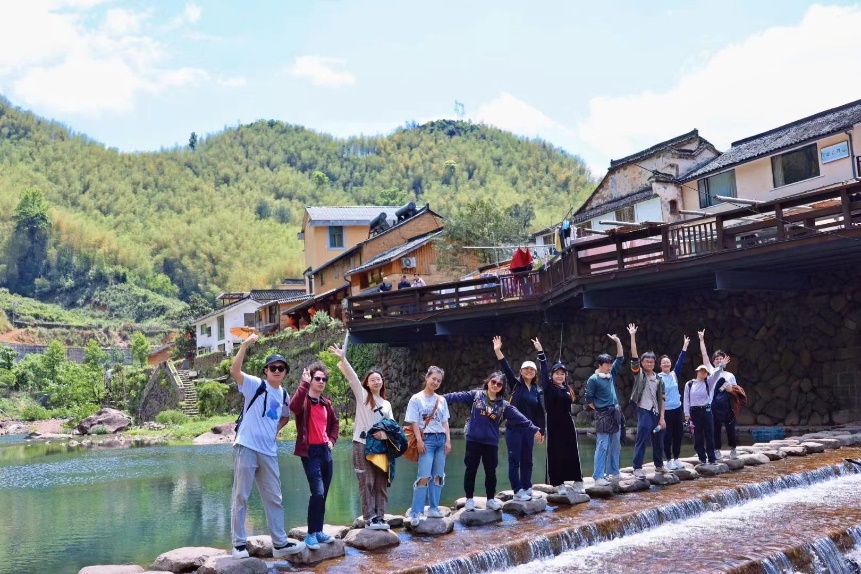Editor’s note: The Belt and Road Initiative (BRI) has opened up vast development space for the participating nations, facilitating profound growth and development. Young individuals from diverse countries have enhanced their understanding and achieved mutual success and growth through learning from each other. Their contributions demonstrate the vigor of youth in the pursuit of a shared future for mankind. This year marks the 10th anniversary of the BRI. In commemoration of this milestone, Shanghai Jiao Tong University (SJTU) has launched the “Belt and Road Youth Stories” article series, recounting the endeavors of SJTU students in BRI.

Profile
Christopher Reyes Loáiciga was born in the Centro American nation of Costa Rica. He graduated from the School of Biology and, soon after, seized a golden opportunity that combined two of his passions: Chinese culture and biology. He applied to pursue a master’s degree in Bioinformatics at SJTU. After obtaining his degree, having found himself in love with the country, the campus, and the research field, he did not hesitate to apply for the Ph.D. program where now he keeps studying in his hectic third year.
From the Field to China and to the Computers
Christopher Reyes Loáiciga, hailing from the small country of Costa Rica on the other side of the globe, finds himself in a lush tropical haven, rich in natural diversity. This environment, whether consciously or not (but it will undoubtedly prove significant later), shaped his earliest memories, fostering a deep fascination with birds, fish, plant growth, and the mysteries of life. The truth is that, growing up with desires to established himself in the field of science, he decided, even before graduating from high school, that he would focus on the field of biology.

For four years, he immersed himself in the study of his homeland, Costa Rica, exploring its jungles, swamps, mountain summits and plains. He gained an understanding of the intricate classifications within the world of life, explored the ceaseless connections among organisms in the depths of natural ecosystems, and uncovered the mechanisms hidden within tiny cells that influence the entire vast living system. Along his regular curriculum, unbeknownst, as all, of the future, he took extra courses in foreign languages, including Chinese and Japanese. After graduating, he was informed of the cooperation between his university and the Chinese Embassy in Costa Rica. Connecting the dots, it becomes evident what unfolded next...
The Field of Bioinformatics
One thing however, may be less expected. Having largely dedicated himself for what can be described as pure biology —spending half his days in wet labs and the other half conducting fieldwork, alternating between lab coats and tall boots in saltwater and muddy beaches— he decided to change some gears and study the fast-evolving and relatively new field of bioinformatics which applies the increasing power and importance of computational tools to study biological data.
Coming to China, his first option was SJTU as it is one of the top universities, not only locally, but globally. After hours of online research, during which he perused countless professor profiles, he reached out to Professor Li Jing from the School of Life Sciences and Biotechnology. This decision proved soon to be one of the best in his life.

Research and Days in the Lab
In his lab, their specialization lies in the analysis of proteomic data, i.e., the detection of proteins expressed by organisms, which can be applied to multiple areas, such as the diversity of microorganisms in unexplored sites, the function that these proteins perform or even how complex diseases such as cancer work, providing clues for treatments. Internationally, the first complete proteome map of human lung adenocarcinoma was completed (Cell 2020), and it was selected for ‘China’s Important Medical Advances of 2020’ and ‘Shanghai Science and Technology Progress Report 2020’. During his master’s studies, he studied the interaction between bacteria that coexist inside us, collectively constituting the human gut microbiota. Those important partners have recently gained significant attention due to their pivotal role in our health. His research was focused on how this complex set of organisms comprise a network. He employed the expression of the proteins within the microbiota to measure how each is related to each other, therefore, constructing a co-expression network. This network was applied to measure the relationship between closely connected sequences and tried multiple algorithms to predict what is the most probable function for each of the sequences.
For his ongoing doctoral research, Christopher has shifted his focus from the expression of proteins in the human gut to the proteins encoded by fungi, specifically on the baker’s yeast. He has concentrated on proteins that are 100 amino acids or less in length, since they have been neglected in favor of larger sequences and as its functionality was previously unknown. In his research, he compared the sequences with multiple organisms related (and not so related) to find out the evolutionary origin of those small proteins and how they come to be and stay on the fungi genomes. This initial step has laid the foundation for his current and upcoming projects, enabling him to build a model of the “life cycle” of these mysterious sequences.
Although much work is done in Li Labs group, also a lot of fun is had. During his years of master degree, each semester the group would organize a trip to different parts of China around Shanghai such as Suzhou or Hangzhou.

The Future
Already in the second half of his four years pressure amounts however research is always enjoyable as new discoveries unfold every day and fresh challenges rise , inviting intriguing solutions. After graduation, Christopher expects to find new opportunities in China to continue his career. Here, the vibrant culture and endless novel experiences keeps him always optimistic about live.
Editor on Duty: Yan Cheng

